Understanding Optimized Keywords: Flame Detection Systems
Optimized keywords refer to a curated selection of terms that best represent a particular topic or industry. These keywords are meticulously chosen through comprehensive research and analysis, taking into account search engine algorithms. In the realm of digital marketing, especially in search engine optimization (SEO), optimized keywords are pivotal. They enhance the visibility of websites and content to search engines and potential customers.
The target audience for optimized keywords encompasses businesses of all scales, ranging from small startups to large enterprises, and individual professionals aiming to boost their online presence. These keywords are indispensable for anyone with an online footprint seeking to attract organic traffic and enhance their search engine ranking. By incorporating these keywords into website content, meta tags, and other digital marketing assets, organizations can refine their online visibility and presence.
Essentially, optimized keywords function by mirroring the language used by users of search engines when seeking information or products. For example, a company specializing in fire detection systems might prioritize keywords like "flame detector" or "smoke detector" over specific brand names or complex industry terminology. This approach not only elevates the website's search ranking but also ensures that the content delivered is pertinent and tailored to potential customers.
Categories of Optimized Keywords: Flame Detection Systems
Flame detection systems are critical in environments where even small fires can result in severe consequences. There exist various categories of optimized keywords for Flame Detection Systems, each designed with specific features to suit diverse applications:
-
UV and IR Flame Detection Systems: These systems utilize ultraviolet (UV) and infrared (IR) technologies to detect flames, commonly employed in high-speed scenarios and environments necessitating the identification of various types of flames, such as those from hydrocarbon or non-hydrocarbon sources.
-
Multi-Spectrum Flame Detection Systems: These systems segment the light emitted by the flame into multiple narrow bands across the electromagnetic spectrum. This differentiation aids in distinguishing between different flame types and offers a more detailed analysis of the fire's composition or the substances involved in a chemical process.
-
Triple IR Flame Detection Systems: These systems incorporate three IR sensors with distinct detection ranges, enabling quicker response times and enhancing the precision of flame detection across expansive areas.
-
High-Speed Video Flame Detection Systems: Equipped with high-speed cameras, these systems capture intricate flame images for analysis, identifying patterns and characteristics indicative of specific substances or events. They are particularly valuable in research settings or where intricate analyses are necessary.
Guidelines for Selecting Optimized Keywords: Flame Detection Systems
Choosing the appropriate optimized keyword flame detection system for your business entails comprehending the specific requirements of your application area and ensuring compatibility with your existing fire safety framework. Here are key considerations:
-
Detection Method: Select a system based on the most suitable detection method for your environment—be it ultrasonic, infrared, or UV detection. The method should align with the prevalent fire types and industry-specific mandates.
-
Area Coverage: Evaluate the system's capacity to monitor the size of the area. Systems differ in their ability to detect flames over large spaces or in outdoor settings where risks may be more pronounced.
-
Sensitivity and Accuracy: Assess the system's sensitivity and accuracy, crucial for prompt fire detection and reporting. Some systems offer heightened sensitivity, detecting fires over greater distances or through obstructions.
-
Integration Capability: Determine if the system can integrate with your existing fire alarm system or requires standalone installation. This choice hinges on how you envision your overall fire protection system to operate.
-
Maintenance Requirements: Consider the system's ease of maintenance. Some systems provide remote monitoring features or issue alerts for necessary maintenance, vital for operational continuity.
By considering these factors, businesses can select an optimized keyword flame detection system ensuring reliable performance that aligns with their safety prerequisites.
Exploring Optimized Keywords: Flame Detection Systems on Alibaba.com
Alibaba.com serves as an expansive platform connecting businesses with a wide array of flame detection systems tailored to diverse industrial needs. The platform offers an extensive assortment spanning various categories customized for distinct applications, whether in manufacturing plants, construction sites, or hotel kitchens, ensuring businesses discover systems aligning with their specific demands.
With over two decades of experience facilitating global trade, Alibaba.com has established itself as a dependable source where businesses can securely procure equipment from verified suppliers. The platform's user-friendly interface enables buyers to easily navigate through options, providing tools to filter search results based on critical specifications like machinery test reports supplied by the vendors.
Moreover, Alibaba.com's commitment to ensuring secure transactions through services such as Trade Assurance instills confidence among buyers that their interests are safeguarded throughout the procurement process. This dedication to fostering a secure trading environment underscores why Alibaba.com stands out as an ideal destination for sourcing top-quality flame detection systems catering to both commercial needs and resale opportunities.
Frequently Asked Questions about Optimized Keyword: Flame Detection Systems
What is the primary function of a flame detection system?
Flame detection systems are designed to sense and alert to the presence of a flame or high heat levels in industrial settings, aiding in fire and explosion prevention.
How do I determine the right type of flame detection system for my business?
Selecting the suitable flame detection system depends on the environment, the fuel or gas being monitored, risk levels, and regulatory compliance requirements.
Which industries commonly utilize flame detection systems?
Flame detection systems are prevalent in industries like manufacturing plants, construction, energy production facilities, and machinery repair shops, where fire or explosion risks are high.
Can flame detection systems be retrofitted into existing buildings?
Yes, flame detection systems can be installed in existing buildings to enhance fire safety measures.
Do flame detection systems offer varying levels of sensitivity?
Yes, flame detection systems provide adjustable sensitivity to detect different flame types and environmental conditions, tailored to specific application needs.
What maintenance is necessary for flame detection systems?
Regular maintenance for flame detection systems typically includes sensor accuracy checks, software updates, and component cleaning for optimal performance.
How does the material choice impact the durability of a flame detection system?
The durability of a flame detection system is influenced by the material used; for instance, stainless steel or reinforced metals may offer enhanced resistance to harsh industrial conditions compared to plastics.
Can I obtain a customized flame detection system for my business requirements?
Yes, many suppliers offer customized support options such as Original Design Manufacturing (ODM) and Original Brand Manufacturing (OBM) services to tailor systems to specific business needs.
What after-sales support is available with a flame detection system purchase?
After-sales support varies among suppliers but may include technical assistance, spare parts provision, repair services, and sometimes on-site support for installation and training.
How do environmental factors affect flame detection system performance?
Environmental conditions like humidity, temperature, and gas presence can impact flame detection system performance, necessitating systems designed to compensate for such conditions.
Can flame detection systems be equipped with remote monitoring capabilities?
Many modern flame detection systems offer remote monitoring features, enabling real-time data analysis and swift responses to potential threats.
What factors should be considered when selecting a local service location for a flame detection system?
Consider proximity to your business, local regulations, service availability in your area, and potential travel costs when choosing a service location for your flame detection system.








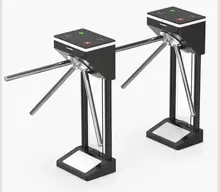



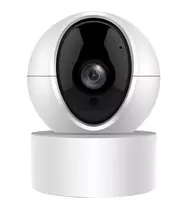

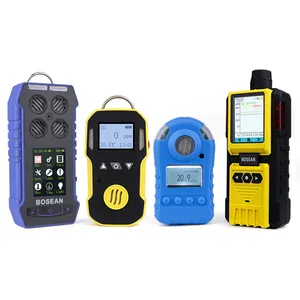


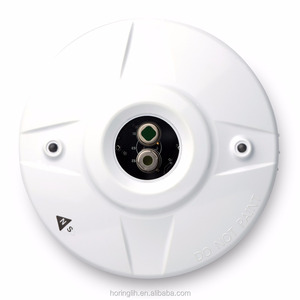
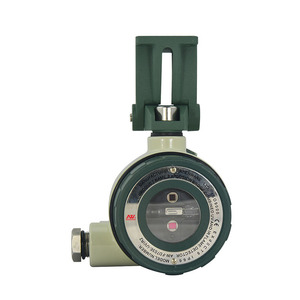
















 浙公网安备 33010002000092号
浙公网安备 33010002000092号 浙B2-20120091-4
浙B2-20120091-4